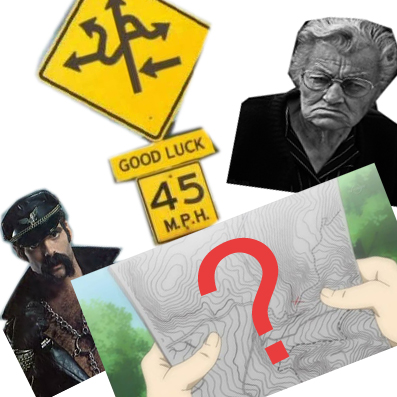
‘Excuse me, where is the war?’
This common faux pas of the French ‘Where is the station (guerre/gare)’ translation may end up with a laugh, a sneer or a slap, depending on which person you ask.
There’s only so much a Lonely Planet guide, language tapes and a map can help you while traveling. At some point you may need to ask for help. But who, and how?
The helpfulness of a nation’s citizens may prove as much as a drawcard as any of the seven wonders. Would you rather go to a smiley happy place, or a sneery snobby place? Olympic cities train workers and citizens to be polite and help map-tangling tourists scratching their heads at street corners. But what about the other three years and other cities of the world?
My mother was recently in Switzerland on a cycling tour, riding alone for the afternoon when she became lost and the map led her onto a dangerous autostrada. Managing to escape the fast trucks, she finally found a train station only to be thwarted by the esoteric ticketing computer. Bursting into tears, the nearby café owner came by and smiled, told her ‘no worry lady’ and showed her how to use the machine. Then a woman came by and said she was on the same train and she would show Mum how to load her bike and when to get off. By the end of the journey, Mum and Maria had a chat about things and Mum was no longer cursing the too-clever Swiss machines and Michelin Maps.
Typical problems— the little yellow box that beeps
Mum thankfully experienced the kindness of strangers and lived to tell the tale. There are many reasons why travelers might need to ask for help:
Lost: even maps can be tricky, particularly ones given by hotels where things may be distorted to make Hotel Hilton look like the centre of the universe. And finding the nearest church as a point of reference is like finding the nearest sex shop in King’s Cross. Even without a map, relying on ‘the sense of direction’ can be thrown off kilter by skyscrapers, jetlag and confusing/lack of street signs.
Confused: Visitors to a foreign supermarket may wonder what those extra numbers are on the fruit signs. The mystery is revealed only when getting to the register and being garbled at, then looking back along the queue to see exasperated shoppers pointing at their banana with a barcode sticker. Oh. Oops.
And don’t forget the rail system in some European countries about validating a ticket in yellow boxes. Ah, of course, what else would they be for. But even the most obvious things are a matter of learning and knowing.
Injured: Cobble stones and slippery rainforest walks are a Band-Aid waiting to happen. More serious accidents need help from other people, like pulling a crazed monkey away from your hair as it tries to eat that sweet-smelling fruit nectar hotel shampoo.
Looking to make friends: there are only so many nights that one can spend alone in a hotel room eating sardines and watching bizarre game shows. Sometimes breaking the ice with the locals can mean feigning any of the above.
Who to ask
People of the same age and gender as you. Think about it—if you were an 18-year-old with a nose ring and black eyeliner, would an Italian nonna show you where the quaint 16th century convent was? Better off asking the lads outside a goth gelateria (well, good luck finding that one…but you get the idea).
Officials. As long as they look relaxed, eg they saunter along the Seine rather than fend off rioting Parisians, then put on your best innocent tourist look and ask.
Tourist staff. Go into a restaurant or hotel reception; they may have a map and may even speak English. But be careful and try to follow rule 1: try to pick a place that you look like you could afford—you could be a potential customer.
Who not to ask
It’s not all happyland and lasses in bikinis walking you up the boardwalk to your hotel. Some people may take your vulnerability and exploit it, either by charging money or worse, by robbing you… and worse. Stereotypical Russian mafia types and tattooed yobs may be the lovely chaps, and instead, the linen-suited Armani man with a poodle may actually be on Interpol’s most wanted. But generally, if they look at you like filth, or are too enthusiastic; don’t even ask for help. Don’t even make eye contact.
How to ask
• Ask with other people around. This will deter dangerous activity, and also may prompt them to ask others if they themselves don’t know.
• Have a map ready or a pen and pencil so they can show/draw directions.
• Try to use as much of their language as possible. They will appreciate the effort.
• Smile!
So next time you need help to find the train station, avoid the war and make some peace with the locals: the kindness of strangers depends on who and how you ask.






